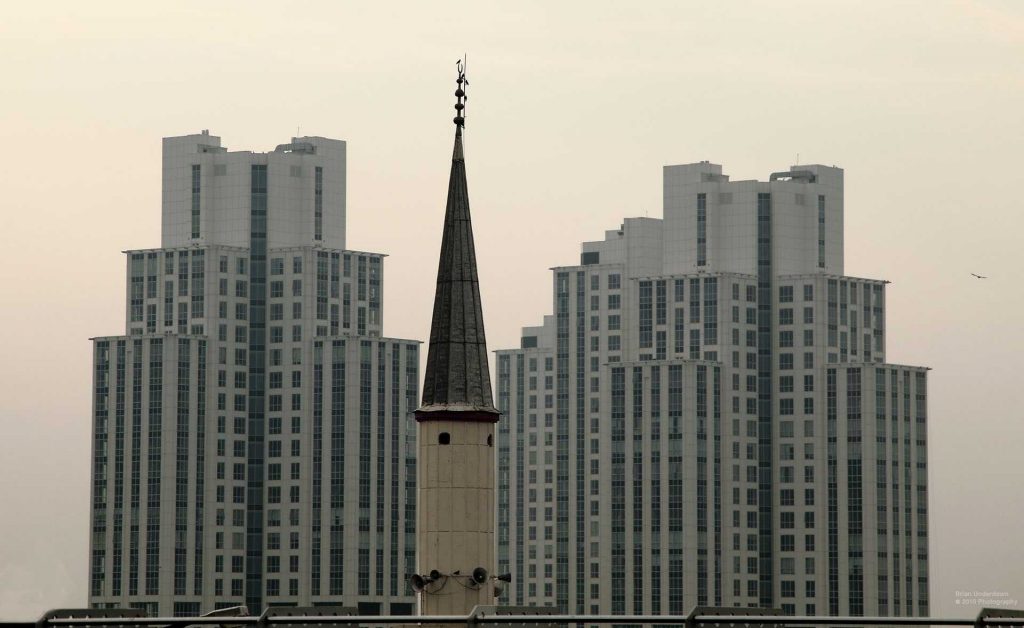Mushtak Parker | Arab News
The decision on Wednesday by Turkey’s Constitutional Court, the country’s highest judicial authority, not to ban the ruling AK Party, or the Justice and Development Party, headed by Prime Minister Recept Tayyip Erdogan, came as a relief to liberal democrats the world over.
The action should never have been brought to the Constitutional Court in the first place. It would never have seen the daylight in any of the established liberal democracies. Chief Public Prosecutor Abdurrahman Yalcınkaya’s submission of his indictment against the AK Party to the Constitutional Court on March 14 this year on the grounds that the ruling party had to be shut down because it allegedly had become a focal point of anti-secular activity is fundamentally an anti-democratic act and should be a cause for concern for democrats, especially in Turkey. It would probably also give succor to the rejectionist chauvinists in the European Union that are actively seeking to block any accession of Turkish membership of the European liberal democratic club.
Yalcinkaya’s request for the five-year ban of 71 individuals affiliated with or members of the AK Party, including president of the republic, Abdullah Gul, an ex-member of the AK Party; Prime Minister Erdogan; eight incumbent Cabinet ministers; and 30 members of Parliament, further betrays his anti-democratic instinct, which is more akin to those who run police states such as South Africa under the successive apartheid regimes of the National Party. Then, the Nationalists had an array of legislation “legitimizing” the banning, house arrest and detention without trial of hundreds of political opponents and so-called liberals.
How ironic for a seemingly secular chief prosecutor trying to use the same tactics as a theocratic Iran, which bans certain individuals from participating in presidential or parliamentary elections; or as Burma, which is ruled by a pernicious and corrupt military junta.
Turks, especially the extremist fundamentalist “secularists,” harbor a fundamental misconception of what liberal democracy entails. And unfortunately this is pervasive in the psyche of large sections of Turkish society, most disconcertingly in that of the powerful military. The guardian of the constitution and of democracy is not the armed forces, as many Turks tend to regurgitate ad nauseum, but Parliament. This is a fundamental ethic of a liberal democracy which cannot be compromised. If it is, then the country cannot call itself a liberal democracy and should have no pretence to being one.
Political and civil liberties are the backbone of a liberal democracy and no matter what in-built judicial and other safeguards politicians conjure up from time to time, including the Blair and Brown governments in the UK and the Bush administration in the US under the clarion call of fighting “Islamic” terrorism, the actions themselves are against the spirit of the liberal democratic ethic if not against the law of the day, which indeed would have the founding fathers of liberal democracy turn in their graves. Turks should be careful not to allow the extreme fundamentalists amongst their elites to hijack the agenda of secularism, which is eminently compatible with political Islam, as the latter is with democracy. Secularism does not mean anti-religion. If it did, then the proceedings in the White House, the US Congress and US Senate, and the UK House of Commons would not start each morning with religious prayers, in this case the (Christian) Lord’s Prayer.
This case as previous others — for instance relating to the election of Abdullah Gul to the presidency — is primarily a manifestation of an ongoing undeclared war between Turkey’s traditional elites centered in the metropolitan cities of Ankara, Istanbul and Izmir, and the emerging new elites emanating from the Anatolian heartlands of Kayseri, Afyon, Malatya etc.
The religious bogey and the threat to secularism are mere smokescreens in this war. Visions of the AK Party as an Islamist Trojan horse in the body politic of Turkey is used by the military and their business supporters to undermine the rise of the new Anatolian pashas. The US and Europe rightly prefer to see the rise of the AK Party as the Islamic equivalent to their own Christian Democrat political parties. This fits in with their worldview of democracy and the Muslim world, and to certain extent gives some “legitimacy” (in their eyes) for their campaigns in Iraq and Afghanistan.
The official Turkish state mantra is that it is a bridge between Asia and Europe, between the East and West, between Islam and Christianity. Unfortunately, at home Turks continue to be polarized. Military secularism, steeped in an authoritarian “father state” ethic, is one Kemalist legacy which continues to undermine bridge-building between Turks, between the elites of Ankara, Istanbul and Izmir and the emerging ones from Anatolia. How ironic it should be the AK Party who seeks to serve and liberalize the Turkish polity with individual rights and freedoms bringing the country into the 21st Century.
The latest constitutional court drama is just one battle in this ongoing war between elites. The losers are Turkish democracy and citizens.


Leave a Reply